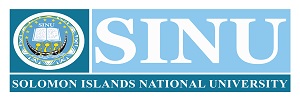
Awareness, community participation, and dengue fever household prevention and control practices in Honiara, Solomon Islands.
Abstract
Dengue fever is endemic in most Pacific Island countries including Solomon Islands. The most recent outbreak of dengue fever was declared towards the end of 2016. Communication for behavioural change and community participation remains a global strategy for dengue prevention and control among high risk countries. The study aims to ascertain the level of awareness, community participation, and dengue fever household prevention and control practices in Honiara, Solomon Islands. A cross-sectional study will be conducted among households in Honiara using a structured interview questionnaire. A sample of 405 Households in 12 council zones will be included using a convenient sampling method. Data collection training and pre-test will be conducted prior to data collection. Ethical considerations and endorsements have been granted by the Solomon Island Health Research & Ethics Review Board. Data will be analyzed using SPSS v21.0. Descriptive (mean, percentages, and cross-tabulations) and inferential statistics with appropriate tests will be utilized. It is anticipated that there will be a low level of awareness due to steady transmission of the virus on previous outbreaks, low level of community participation due to diverse ethnicities in Honiara and poor level of dengue fever prevention and control practices due to above factors. The report of the study will be disseminated to the Vector-borne, Health Promotion and the Environmental Health Division of the Honiara City Council and the MHMS, Online journal publication and other local and international organization interested in dengue fever prevention in the country.
Investigators
Nixon Panda, Josephine Maelaua, Rose Mauga, Harold Maesulia and Goretti Pala
